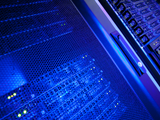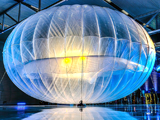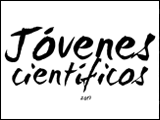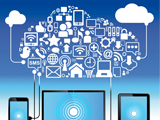IMDEA Networks

Archives: Events
SEMPER: A Stateless Traffic Engineering Solution for WAN based on MP-TCP
Enterprise Networking has a strong set of requirements in terms of resiliency, reliability and resources usage. With current approaches being based on monolithic and expensive infrastructures using dedicated overlay links, providers are moving to more economical hybrid solutions that encompass private dedicated links with public/regular Internet connections.
Read more arrow_right_altMeeting the Challenges of the Protocol Level Issues for 5G Networks
Among the primary challenges of the roll out 5G networks are the protocol level issues it faces. Issues such as mm-wave beamforming, initial access, MAC layer design, mm-wave localization, network architectures, are all proving to be key elements that must be addressed. Both industry and academic research is still at an early phase of this work and for it to progress work must be done on a number of fronts in terms of test and measurement and other issues. This webinar will examine the work that is being done in addressing these issues and some of the solutions that have been developed.
Read more arrow_right_altDemo: Fronthaul and Backhaul traffic over 5G-Crosshaul data plane
This integrated demo will interconnect different transport technologies carrying backhaul traffic, fronthaul traffic and both in one network, which demonstrates the 5G-Crosshaul data plane technologies developed in the project.
Read more arrow_right_altLoon - Google’s balloon based aerial network
The seminar will provide an introduction to the Project Loon, a network of balloons designed by Google to extend Internet connectivity to people in rural and remote areas worldwide. We will review its main technical characteristics and how it has evolved in the last couple of years. It will also review the activities carried out in cooperation with Telefónica in Latam, including technical trials in Chile and Perú, and provide an assessment of the main issues the project faces to become a sustainable commercial system. Although not likely to be covered in the seminar, we will also provide some information about other alternatives to provide connectivitivy using aerial networks, like
Read more arrow_right_altFormalizing and Implementing Distributed Ledger Objects
Despite the hype about blockchains and distributed ledgers, no formal abstraction of these objects has been proposed. To face this issue, in this paper we provide a proper formulation of a distributed ledger object. In brief, we define a ledger object as a sequence of records, and we provide the operations and the properties that such an object should support.
Read more arrow_right_altJoint design of wireless network architectures and economic models
Wireless networks are progressively displacing service provisioning towards the edge to accommodate the increasing traffic demands. This paradigm shift calls for smart policies to efficiently share network resources and ensure service delivery. In this talk, a concept of bidding and tipping for spectrum auctioning will be presented. In this concept users iteratively revise their strategies, which include bidding for spectrum, route selection and relaying incentives, to achieve their quality of service requirements. Further, a reinforcement learning algorithm will be discussed to automatize the bidding process based on users¹ previous experiences. Then, a collaborative cognitive dynamic network architecture (CDNA) will be outlined where mobile devices share their connectivities acting as access points for other users and harvest available spectrum.
Read more arrow_right_altAccording to my calculations… the house always wins!
Ander Galisteo, a PhD student in Telematics Engineering at the research institute IMDEA Networks, has been invited to give this talk aimed at scientific dissemination within the program "Young Scientists 2017" of the Madrid Science.
Read more arrow_right_altPrivacy in personal trajectories: problems and solutions
Collecting data generated by widespread digital transactions is an increasingly common practice. The likes of telecommunication network operators, mobile service providers, app developers and financial companies have the possibility to track the movements, preferences, activities and habits of large populations of individuals.
Read more arrow_right_altNot All Apps Are Created Equal: Analysis of Spatiotemporal Heterogeneity in Nationwide Mobile Service Usage
We investigate how individual mobile services are consumed at a national scale, by studying data collected in a 3G/4G mobile network deployed over a major European country. Through correlation and clustering analyses, our study unveils a strong heterogeneity in the demand for different mobile services, both in time and space. In particular, we show that: (i) somehow surprisingly, almost all considered services exhibit quite different temporal usage patterns; (ii) in contrast to such temporal behavior, spatial patterns are fairly uniform across all services; (iii) when looking at usage patterns at different locations, the average traffic volume per user is dependent on the urbanization level, yet its temporal dynamics are not. Our findings do not only have sociological implications, but are also relevant to the orchestration of network resources.

Network Cloudification: SDN-NFV and 5G-MEC with Edge and Fog Computing
The second wave of cloud computing, named network cloudification, in the forms of SDN (Software Defined Networking), NFV (Network Function Virtualization), and 5G-MEC (Mobile Edge Computing), is to centralize and virtualize networking into data centers.













Recent Comments